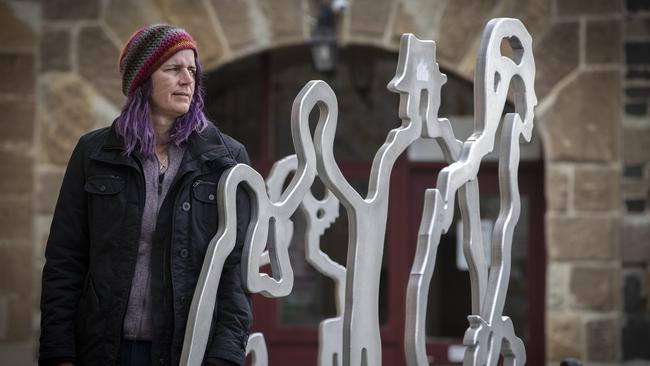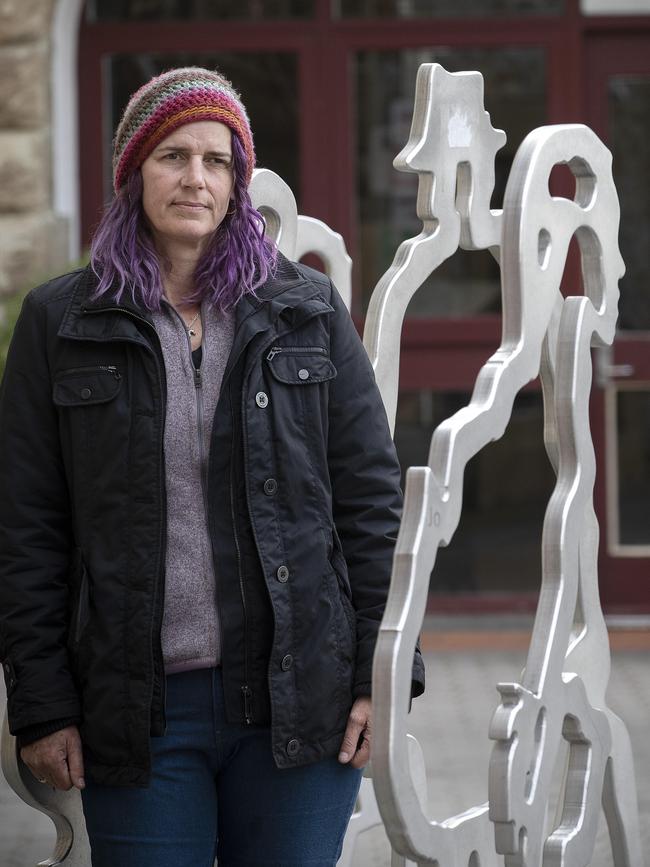‘I want to have a voice for myself’: Child of forced adoption reveals dark aspect of Tasmanian history
The child of a forced adoption in Hobart during the 1960s says it’s time for voices like hers – the babies that were taken from their mothers – to be heard.
Tasmania
Don't miss out on the headlines from Tasmania. Followed categories will be added to My News.
A CHILD of a forced adoption has come forward to tell her story, and shine a light on a dark aspect of Tasmania’s history.
Erica Freeman, 53, has taken the rare step of revealing herself as one of the babies in the 1960s removed from their mothers at what was the Royal Hobart Hospital Obstetric Division in Gore Street.
She spoke to the Mercury after reading a series of stories about the mothers who were traumatised by forced adoptions at Gore Street and at the Salvation Army Elim Maternity Hospital in West Hobart.
Ms Freeman said while she was happy those mothers were finally coming forward after bearing their terrible secrets over a lifetime, she felt the babies themselves, and their adoptive parents, were also forgotten victims.
“This is important to me to have my say,” Ms Freeman said
“I think it’s great that the birth mothers are coming out, but they’re talking about these babies and I feel silenced by that. That’s why I’m here – because I want to have a voice for myself.”
She said she didn’t want adoptive parents like hers to be considered villains.

“I really want it to be known that Mum and Dad didn’t know anything about this. They had no idea what was going on. All they thought was that they were helping out this baby,” she said.
“I just feel like sometimes the people that were doing the adopting are seen as villains, that somehow they had something to do with it … but that wasn’t the case. They were innocent too.”
Ms Freeman said both her adoptive parents died when she was a teenager – a trauma she was still grieving when she finally met her birth mother at age 20.
As a result of her trauma, plus her birth mother’s ongoing acute grief of losing her baby, she said the two had been unable to form an ongoing relationship.
“She can’t get over losing the baby, except that I’m not a baby, I’m a complex, fully-grown adult that’s also had trauma from this experience,” Ms Freeman said.

“I lost a whole family. I lost my identity. I was bullied about it when I was at school. So it’s been big in my life as well – not knowing where I come from, not knowing my real name, not knowing my medical history, always having to say ‘I’m adopted’ when I got to the doctor.”
She said while she’d been adored by her adoptive parents, other people in the Hobart community weren’t so kind.
Ms Freeman said when she was seven, a little boy rode up on his bike and called her a “bastard”, while making a terrible slur about her mother.
“Obviously I’ve never forgotten and will never forget,” she said.
“I wore the bastard tag all my life. I was the bastard child.”
She said she was also tormented at school in Hobart, with the other kids relentlessly bullying her for being adopted.
However, Ms Freeman said there were some positive elements of her story too.
She’d been able to form a relationship with her birth father – an alternative clothes merchant in Melbourne who had no idea he’d had a baby at all, and who “took it pretty well”.
She said she’d found her dad after connecting with “the retriever”, private Detective Keith Schafferius, via the Richard Fidler podcast.
But Ms Freeman – who left Tasmania at age 18 – said she didn’t have relationships with the family members of either of her birth parents.
“For me the pain has come from the ongoing loss of identity and continuing rejection,” she said.
“I was thinking I might have the chance of having a mum again.”
If you or a loved one is struggling, further support is available:
Lifeline Australia – 13 11 14
Beyond Blue – 1300 22 46 36
Rural Alive and Well – 1300 4357 6283
Kids Helpline – 1800 551 800
More Coverage
Originally published as ‘I want to have a voice for myself’: Child of forced adoption reveals dark aspect of Tasmanian history





